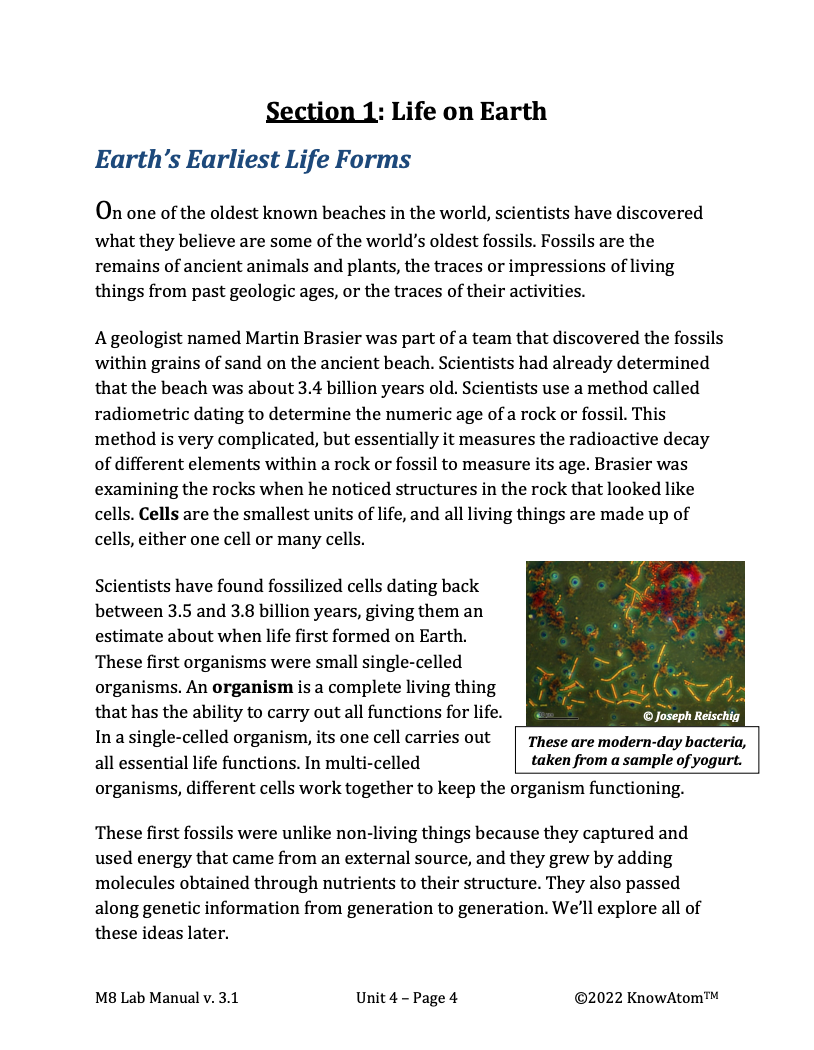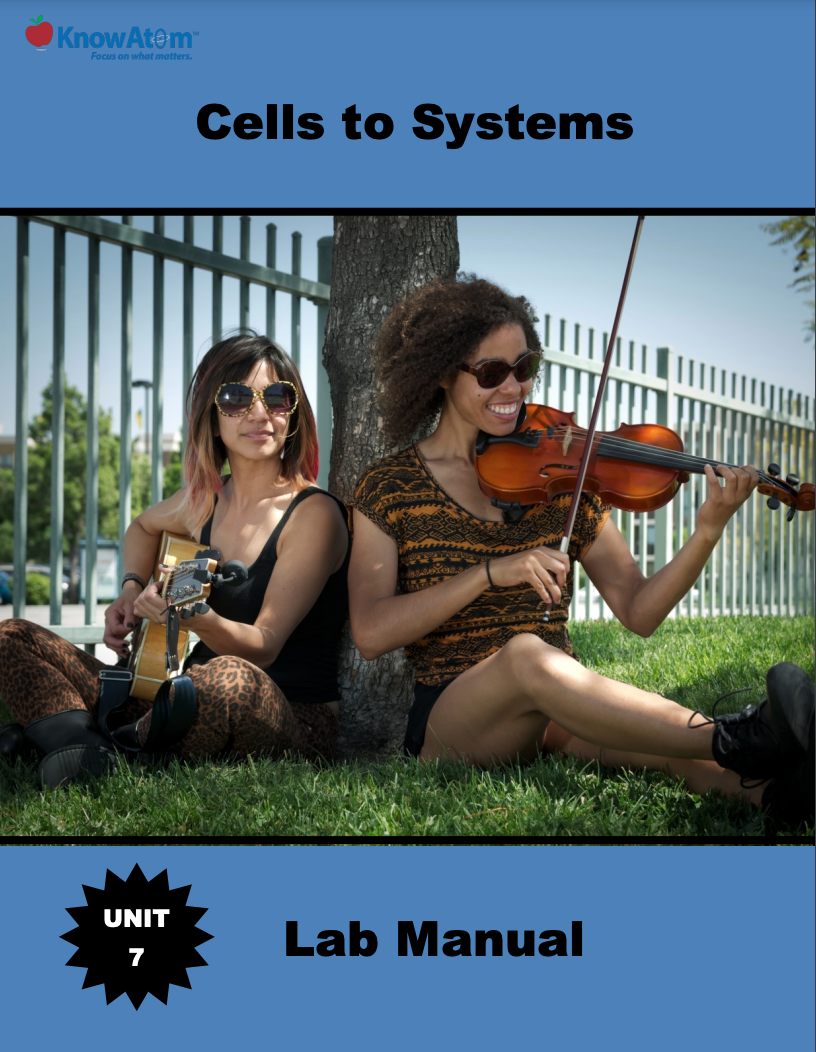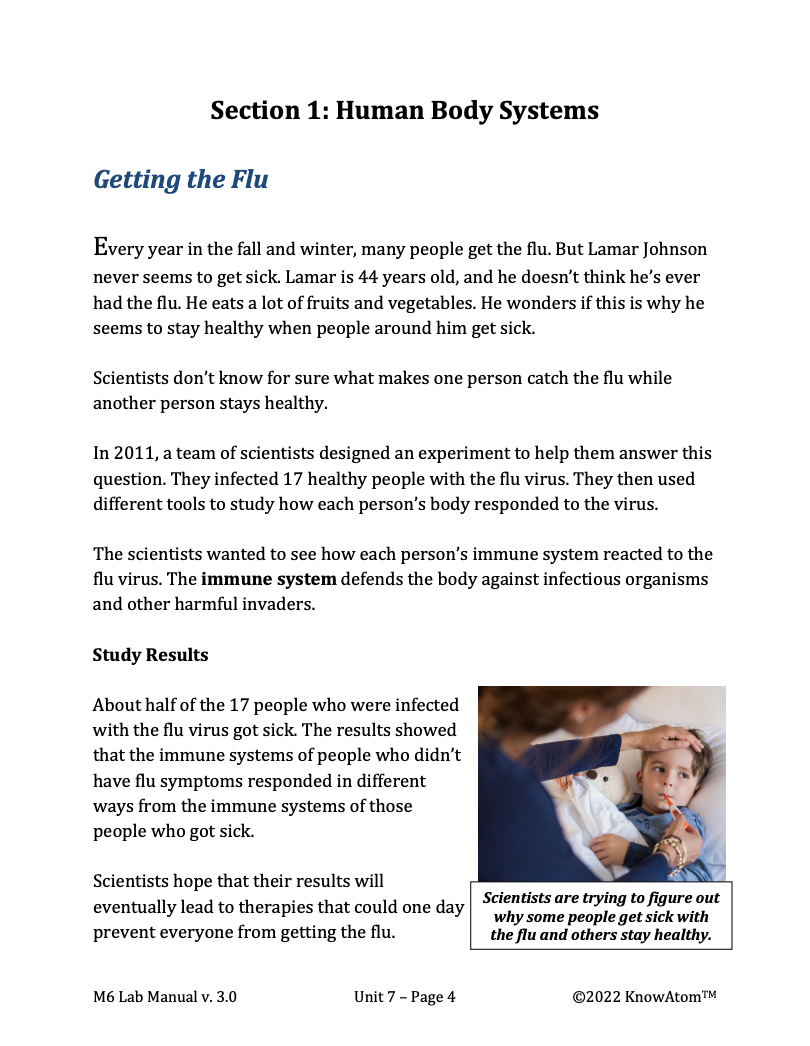
In this unit, students explore science phenomena related to life forms that live on Earth, analyzing the cellular structures that make up complex organisms and how different groups of cells work together to keep the organism functioning properly. In this lesson, students test the effect of sucrose concentration on the heart rate of daphnia, observing how different organ systems work together. This page provides a high-level extract of this lesson.

In this unit, students focus on the structure and function of specialized cells, tissues, and organs in the phenomena of complex multicellular organisms, and they explore how the body processes information gathered by sensory receptors. In this lesson, they develop a model for a human organ system and then observe different human cells to understand how structure influences function. This page highlights each part of this lesson.

In this unit, students discover the structure and function of specialized cells, tissues, and organs in complex multicellular organisms, and they explore the phenomena of how the body processes information gathered by sensory receptors. This page is a high-level lesson extract.
Standards citation: NGSS Lead States. 2013. Next Generation Science Standards: For States, By States. Washington, DC: The National Academies Press. Neither WestEd nor the lead states and partners that developed the Next Generation Science Standards were involved in the production of this product, and do not endorse it.
